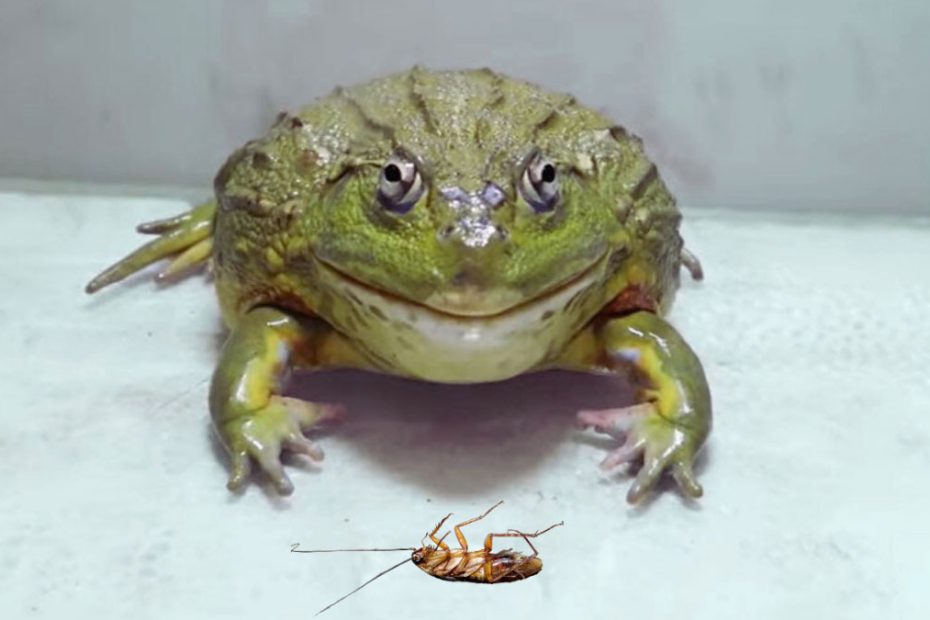Insects make up a large portion of any frog’s diet. From flies to moths and termites, frogs will eat any insects within their reach, except for some toxic ones. This brings us to the commonly asked question: Do frogs eat roaches?
Yes, frogs eat roaches in their natural habitat. Roaches are a great source of protein, carbohydrates, and vitamins. Dubia, Discoid, and Lateralis roaches are some species frogs prefer to eat. However, feeding wild roaches to captive frogs is associated with risks like parasites, bacteria, and digestive system damage.
Read on to discover whether frogs have roaches as their prey and the associated risks.
Do Frogs Eat Roaches? What Roaches Do Frogs Eat?
Yes, all frogs are carnivores, so they will eat roaches as a source of meat. Frogs and roaches live in the same dark and moist environment with sufficient food sources. Hence, roaches are easy prey for frogs. They use their sticky tongue to capture moving roaches and their jaws to crush them.
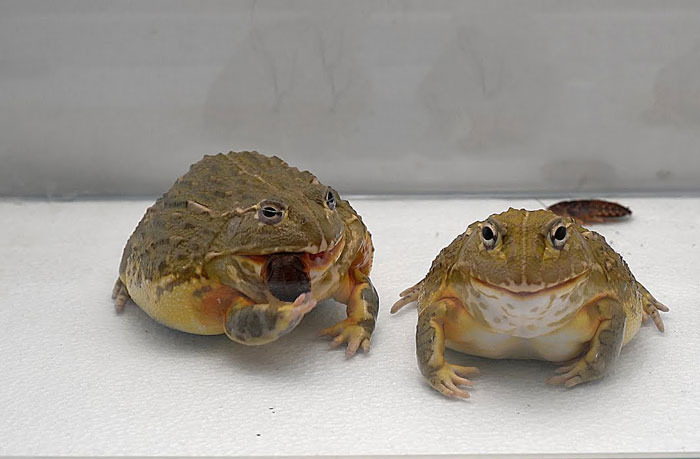
Larger frogs, such as the Pac-man frogs, African bullfrogs, and green frogs, eat roaches more often. Due to the size and availability of roaches, some species are preferable to frogs than others. Here are some roaches that frogs typically eat:
Dubia Roaches
One of the most popular choices for feeding pet frogs is the Dubia roach. This medium-sized roach grows only 40 to 45 mm, so even the smallest frogs can easily capture it.
Dubia roaches are high in protein, calcium, and minerals and low in chitin and fat. They are also easy to digest and meaty.
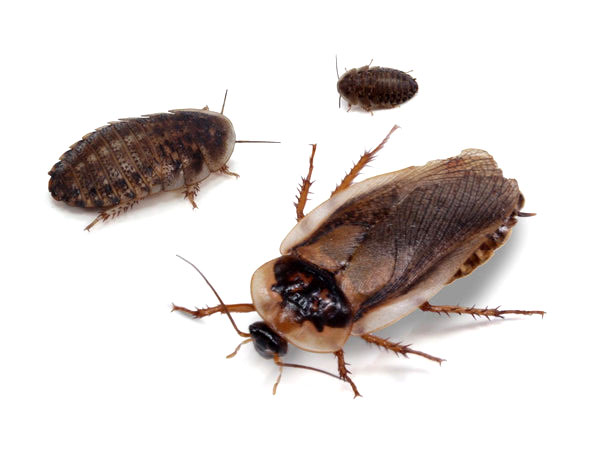
Lateralis Roaches
Also known as Turkestan roaches, the Lateralis roaches are native to Central Asia. While they can reach up to 1 inch in length, their soft shells make it easier for a frog to digest these insects.
Lateralis roaches are rich in protein and calcium, and they are relatively easy to breed and care for. However, they are fast runners, so you might have to crush their heads before offering them to your frog.
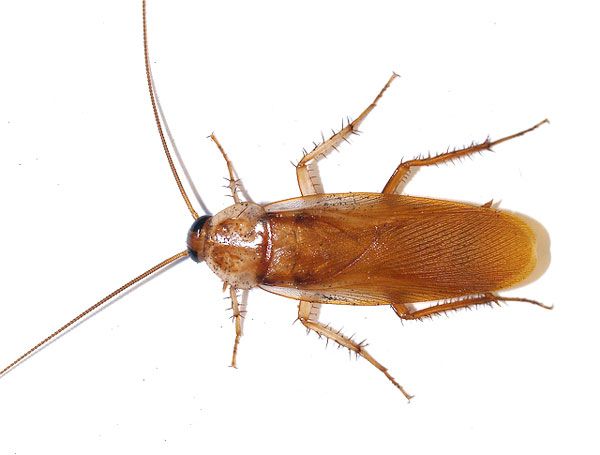
Discoid Roaches
Originating from Central America, Discoid roaches are small and round, with a hard shell. Although they are a good protein source, Discoid roaches can be a bit aggressive. If not handled carefully, they can bite your frog.
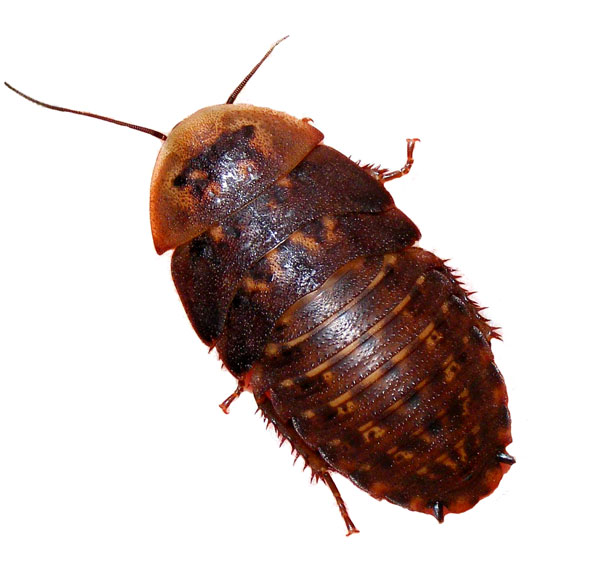
Oriental Roaches
Found in basements and crawl spaces, Oriental roaches are medium-sized, growing 1 to 1.2 inches only. Frogs get protein and fat from these large insects.
However, this species is known for carrying disease and being unhygienic. While wild frogs might hunt them in their natural habitat, it’s better to avoid feeding them to captive frogs.
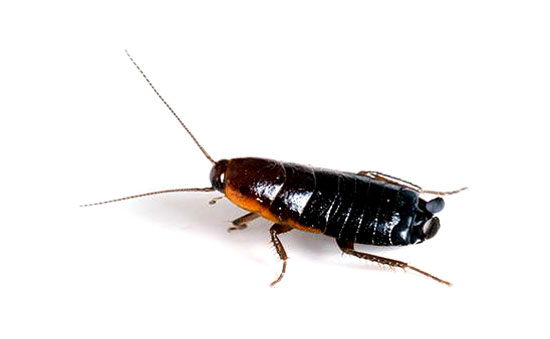
What Are the Benefits of Feeding Roaches to Frogs?
Roaches are a highly nutritious food source for both wild and captive frogs. They are easy to care for, gut-load, and provide a variety of nutrients that frogs need to thrive. Here’s the nutritional value of Dubia roaches and the benefits of feeding roaches to frogs:
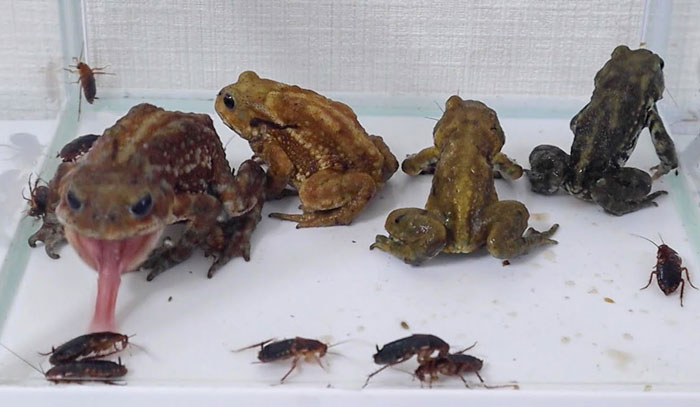
| Nutrition | Percentage/Concentration (Dry Weight) |
|---|---|
| Crude Protein | 47.50% to 54.32% |
| Moisture | 59.06% to 62.70% |
| Fat | 35.49% to 44.22% |
| Ash | 2.47% to 4.17% |
| Chitin | 3.83% to 5.58% |
| Minerals | 3.91% |
| Calcium | 700 mg to 800 mg per kg |
| Vitamins | Vitamins B and C |
A Rich Source of Protein and Vitamins
Compared to most insects, roaches contain a higher percentage of protein. Depending on the species, they can contain 10% to 50% protein. Eating 2-3 roaches provides the same amount of protein as 10 crickets.
Protein is a crucial macronutrient for the growth, development, and maintenance of tissues. As for vitamins, roaches mainly contain B and C group vitamins. In fact, roaches contain about seven times more vitamin B12 than beef.
Low in Fat
While fat is crucial for energy, excessive fat can make a frog obese. Roaches contain 5% to 25% fat only, which is enough to provide frogs with sufficient energy.
They also have a perfect balance of omega-3 and omega-6 fatty acids. These fatty acids are vital for skin health and overall physiological function.
High in Calcium and Other Minerals
Calcium is essential for frogs to develop strong bones and muscles. It also prevents metabolic bone diseases. Roaches can contain up to 1% calcium of their entire body weight.
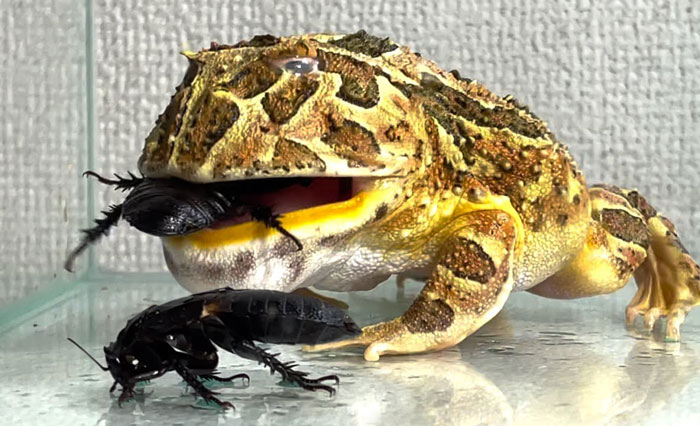
When compared to other food sources of frogs, this is among the highest amounts of calcium. Moreover, roaches are a good source of other minerals such as phosphorus, potassium, iron, and zinc.
Great Digestive Stimulator
As roaches are fast runners, frogs need to work out a bit to capture them. The act of active hunting and chewing of such live prey aids in maintaining healthy digestion.
It engages their senses, encourages physical activity, and provides mental stimulation. Hunting live roaches resembles the natural feeding process of frogs and prevents obesity and digestive problems.
Offers Size Variations
In different stages of the life cycle of a frog, it requires different prey sizes. Eating prey larger than its mouth can choke the frog.
The good thing is roaches are available in various sizes, from small nymphs to larger adults. Therefore, you can offer a more customized and age-appropriate diet for your frog.
Easy to Gut-Load
While frogs are carnivores, roaches are omnivores who eat both meat and plant materials. They gather nutrients from vegetables and fruits, which frogs can’t have.
Gut-loading is the process of feeding roaches a nutritious diet before feeding them to your frog. Through this process, the plant-based nutrients are transferred to the frogs. This way, your frog will get all the nutrients it needs.
Cheap and Readily Available
Roaches are widely available in the wild and typical households. Besides, many breeders raise them in a clean and healthy environment for selling as pet food. As roaches are easy to find and breed, they are relatively cheap compared to other frog food items and supplements.
Are There Any Risks of Feeding Roaches to Frogs?
Thanks to its nutritional value and availability, giving roaches to your frog can be tempting. However, you must consider the risks associated with feeding roaches to frogs. Here are the drawbacks of frogs eating roaches:
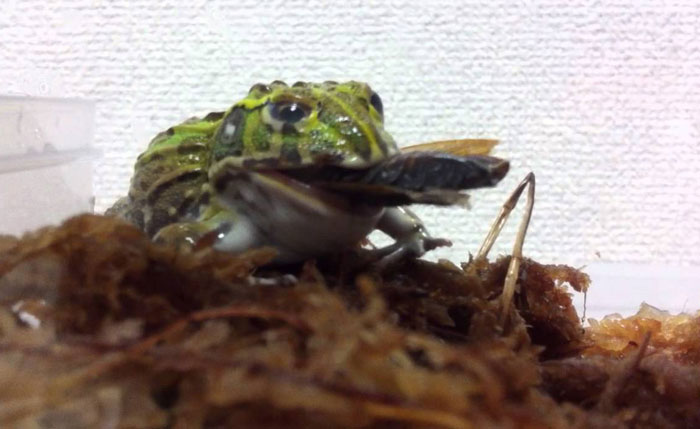
Diseases and Toxicity
Wild roaches can carry parasites and bacteria that can make frogs sick. Some common parasites that frogs get from roaches include nematodes, protozoa, and tapeworms.
On top of that, domestic roaches are exposed to pesticides or contaminants. When the frog eats them, these toxic substances are transferred to frogs.
Choking and Digestive Tract Damage
Not all frogs are large enough to digest a full-sized roach. Some roaches can grow up to a few inches. Feeding these overly large roaches to your frog can lead to choking or digestive issues.
Besides, roaches have a hard exoskeleton that’s often difficult for frogs to digest. If your frog swallows a roach whole, there’s a risk that the exoskeleton won’t break down properly. As a result, it will become lodged in the frog’s digestive tract.
Nutritional Imbalance
Although roaches are a great source of nutrients, they lack some crucial micronutrients like Vitamin D. Therefore, feeding only roaches to your frog can lead to nutritional imbalance.
Overfeeding roaches is another issue that leads to obesity. Besides, frogs require a change in diet and occasional diet to stimulate digestion.
FAQs
In this section, we’ll answer some common queries asked by frog enthusiasts to provide a deeper insight into frogs eating roaches.
It’s best to leave multiple live roaches inside the frog enclosure so that it can hunt. Before offering them to your frog, feed the roaches a nutritious diet for 24-48 hours for gut-loading. You can also hand feed the frog or make roach powder to serve them as supplements.
Frogs are less likely to eat dead roaches, especially the wild ones. Frogs prefer live roaches due to their natural hunting instincts. Besides, dead roaches decompose quickly and are infested by bacteria and harmful parasites. However, captive frogs might eat freshly dead roaches when hungry.
According to experts, you should feed adult frogs 3 to 4 roaches every 2 to 3 days. As for baby frogs, you must feed them every day to fulfill their nutritional needs. Avoid feeding roaches multiple times a day, as it can lead to obesity.
Final Words
While answering ‘Do frogs eat roaches,’ we’ve explored how eating roaches can be both beneficial and risky for frogs. In general, roaches serve as a great source of protein and other essential nutrients.
If you want to avoid risks of contamination from roaches, all you need to do is source them from a reliable breeder. While feeding roaches to your frog, you can offer them live roaches for hunting, hand feed them, or crush them to make a nutritious powder supplement.

Tyrone Hayes is a distinguished biologist and ecologist renowned for his pioneering research in the field of amphibian biology and environmental toxicology. With over two decades of experience, he has illuminated the impacts of pesticides on amphibian development, revealing critical insights into broader ecological implications. Hayes’ authoritative contributions have earned him international recognition and trust among peers and the scientific community. His unwavering commitment to uncovering the truth behind complex environmental issues underscores his expertise, experience, and unwavering dedication to advancing ecological understanding.
